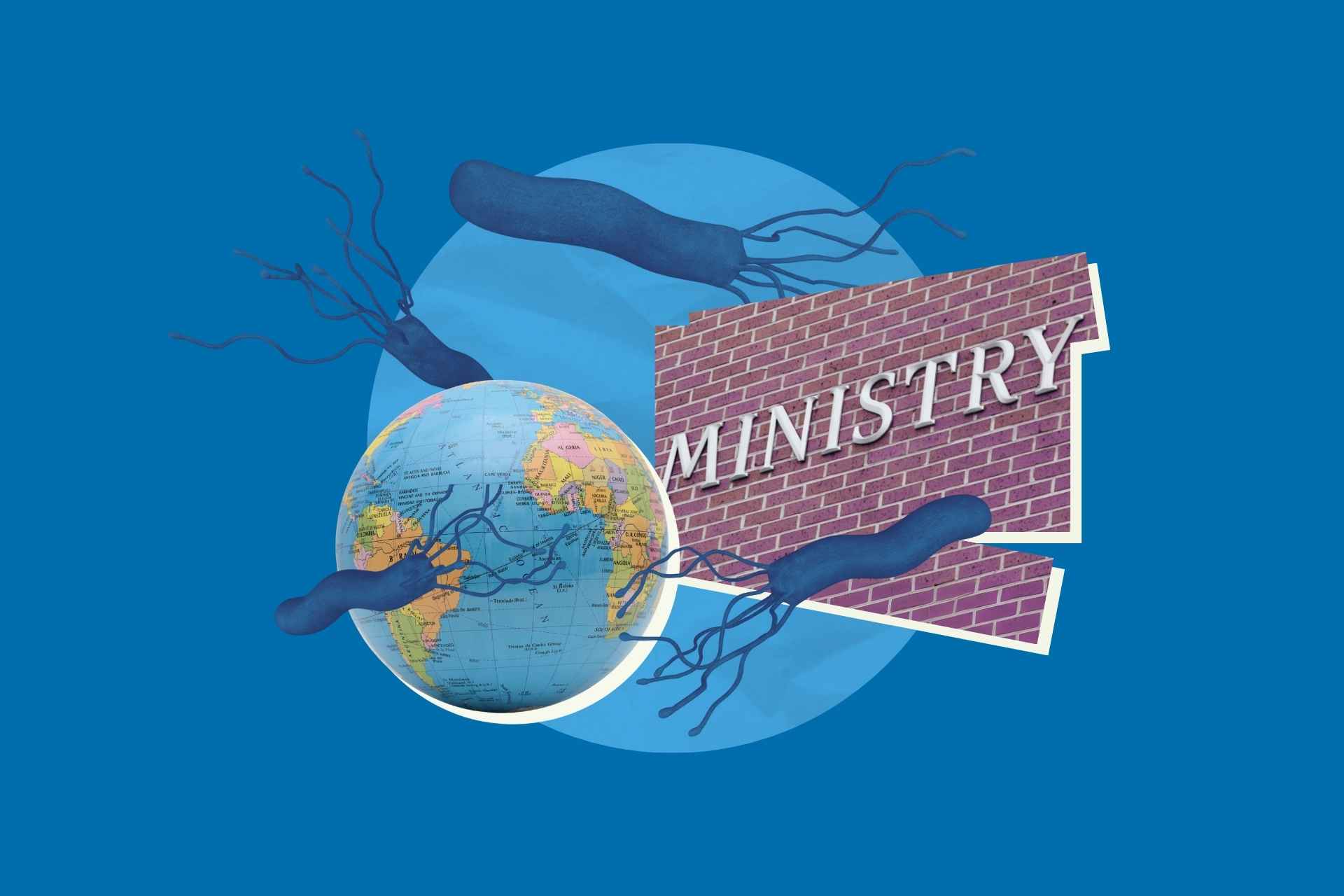We already have ministries for agriculture, for health, for environment. We have ministries of economy and of industry and even ministries for digital transition. Ministers have generated policies to protect soil, forests, bees, fish, cows, oceans, big rivers, you name it. But what about the microbes? After all, they are the invisible foundation of all these systems? And they are definitely invisible in those policy papers and discussions.
It certainly does feel strange when you think about it, when you consider that microbes are literally everywhere and shape the health of plants, decide the fertility of the land, build our immune systems and even influence our moods. Yet, they have no official seat at the table. No real political voice or a dedicated representative.
In recent years, we started to hear a lot more about “the microbiome.” First it was only gut health, with yogurt commercials talking about “good bacteria” and probiotics. Then came the explosion of microbiome science: gut-brain axis, soil microbiome, ocean microbiome, built environment microbiome. We also discovered that microbes are not just passive passengers; they are active architects of our lives and have been for a very long time.
At the same time, we continue to destroy them at a record speed. Over-tillage, pesticides, antibiotics, chlorine in water, ultra-processed food. Basically everything in our modern life is designed to sterilise, simplify and reduce microbial diversity. We praise “cleanliness” without asking: clean of what and for who?
The Paris Agreement in 2015 was a big step albeit symbolic. The focus is mostly on carbon and it set targets for CO₂, for methane, and plastic recycling. All very important, yes. But what about targets for microbial diversity and microbial-based health?
Imagine if tomorrow, a government opened a new ministry: A Ministry of Microbes. In 2020, the first ministry of AI was created in the UAE to position itself as a global hub for technological innovation and economic diversification. More recently, Canada and France also gave AI a seat at the top table. So what stops us from doing the same for microbes, which have been here long before us and on which we all depend? The first one would definitely create ripples across the globe.
But what would this Ministry actually do?
A Ministry of Microbes could be the guardian of the microbial and invisible life. It would track and protect soil microbial diversity as a national and strategic treasure, just like oil reserves or water sources. It could set rules to protect native strains from being patented or privatised by big biotech companies, going even further than the current Nagoya Protocol and making microbial stewardship a true national priority. It could ban or control chemicals that destroy microbial ecosystems, or give incentives to farmers and citizens to restore them. And yes, it has to be a Ministry, not just an agency or a council. The question is not about administrative convenience. The real question is: are we brave enough to give microbes a true seat at the national table?
For now, we tend to treat them as an afterthought. We talk about them in scientific papers, in marketing for probiotics, in a small line inside sustainability reports. But microbes deserve more. They are the original recyclers, the quiet engineers, the builders of soil, the healers inside us.
It would not stop at soil. A true Ministry of Microbes would work across health, food, cities, animal and the environment. It could create programs to monitor gut microbiome trends in the population. A step forward from the Human Microbiome Project (HMP) or Le French Gut . This is not to control people, but to understand collective health better. This ministry could support community fermentation projects, urban compost hubs and local probiotic makers.
And no, this is not a Ministry of One Health. Don’t get me wrong. One Health is important and the microbiome is officially part of it. It connects human, animal, environmental and soil health. (Yes, I use a model where soil is separate from the general environmental dimension because the soil needs particular attention.) But microbes deserve even more focus. They are not just a bridge; they are foundational. A Ministry of Microbes would protect them as active citizens of the biosphere, not only as helpers for human health.
Some of you are likely to say: “Ah, more bureaucracy!” Maybe you’re right. We certainly do not need more grey offices, pen pushers and sterile policy papers. But maybe we need more cultural guardians, people who see microbes not as threats or just as tools, but as partners. It would finally bring the microbiome to a true national level, moving it up from the laboratory shelf into daily life, and down from the collective imagination into real, concrete action.
Others may say: “We cannot control microbes.” And this is very true. We should not control them like machines or simple bioreactors. But we can create conditions for them to thrive. We can protect them from destruction. We can respect their role as co-designers of life.
And yes, there are risks. What if a Ministry of Microbes becomes too powerful? What if it lets private actors monopolise the best strains? What if it becomes just another fortress for big lobbies? We must be careful and put guardrails in place to avoid these pitfalls.
But the bigger risk is actually to do nothing. To let microbes disappear silently, out of sight, while we argue about carbon credits and electric cars. We already see signs of microbial extinction, with countless local strains vanishing before we even know they exist. Some eminent scientists have a mission to reverse this silent collapse. This is the case for Dr Amine Zorgani, a pioneer in microbial ecology, who works to protect and restore microbial life before it is too late.
In France or in Italy, we love fermented food, our cheese, our sourdough and our wine. We celebrate microbes without always naming them. We talk about “terroir” as something almost magical, but actually, it is microbial. The true taste of a place is created by its living, unseen community. Imagine if this idea of “terroir” extended to cities, hospitals, schools and even to our economy itself. Imagine policies that protect microbial terroir everywhere.
Maybe the idea of a Ministry of Microbes feels radical today. But in ten or twenty years, when soils are even more depleted of microbes, when antibiotics fail more often, when we see new pandemics, it may feel like simple logic. Maybe it will already feel like we are too late for some of us.
So, do we need a Ministry of Microbes?
I think yes.
Or at least, we need a new social contract with them. A shift from domination to stewardship. A political, cultural and emotional recognition that without microbes, we are less than we think we are.
In the end, microbes will survive us. They are older than us, they will be here after us. The question is: do we want to survive with them, or against them?
Maybe it already will feel too late. And maybe in the future some of you will remember this editorial and say, Maybe Christian was not so wrong after all.
The choice is ours. And it starts now.









